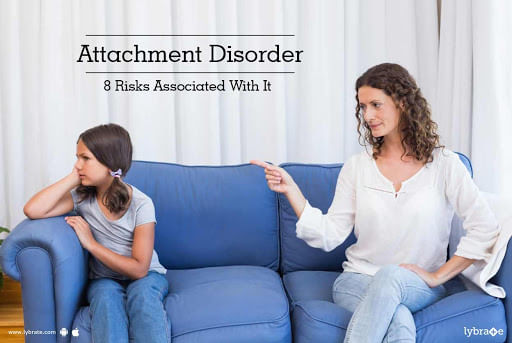Attachment Disorder - 8 Risks Associated With It
While most children share a strong bond with their parents, especially the mother, some infants are unable to establish lasting relationships with their parents or caregivers. This is known as attachment disorder. It is a rare yet serious condition as it affects the child’s relationships at a later stage and also triggers delinquent behavior. Children, who have been abandoned, orphaned or are victims of abuse are the most vulnerable to this condition.
What causes attachment disorder?
The exact cause for attachment disorder is not yet understood. However, researchers have put together a number of viable hypotheses for this. One such hypothesis suggests that when needs of a child are ignored or when he begins to feel unwanted, the child begins to expect hostility, negativity and rejection. This is a learnt response and the child begins to feel that his needs are unwanted. With time, these responses make the child untrusting and he withdraws into himself to avoid social contact. This affects the development in the brain and causes attachment problems that affect the child’s personality and future relationships.
Risks associated with it
Some children are at a higher risk of attachment disorder than others. This includes
- Children living in orphanages or other such institutes
- Children whose caregivers are changed frequently
- Children who have had prolonged hospitalization
- Neglected children
- Children who have suffered from physical, sexual or verbal abuse
- Children living in extreme poverty
- Children born to parents with mental conditions or anger management problems
- Children born to a mother suffering from post partum depression
Symptoms
There are two types of attachment disorders; inhibited and disinhibited.
- Inhibited attachment disorder: Children suffering from inhibited attachment disorder are likely to be:
- Detached
- Withdrawn
- Unresponsive to comforting ie. they shun all types of relationships and generally do not get along with their peers or caregivers.
- Disinhibited attachment disorder: On the other hand, children suffering from disinhibited attachment are likely to:
- Seek attention
- Display inappropriate behavior
- Frequently break social boundaries
- Be inappropriately familial and attached to selective figures.
Additionally, children suffering from either type of attachment disorder are manipulative, destructive, moody and lack compassion and remorse.
Effects of attachment disorder
If not managed properly in its early stages, this disorder can continue into adulthood. This leads to:
- Relationship problems with peers, friends and family members
- Low self esteem
- Depression
- Anger management
- Academic problems
- Unemployment
- They are also at a high risk for drug abuse and alcohol addiction
If you wish to discuss about any specific problem, you can consult a psychologist.



+1.svg)
